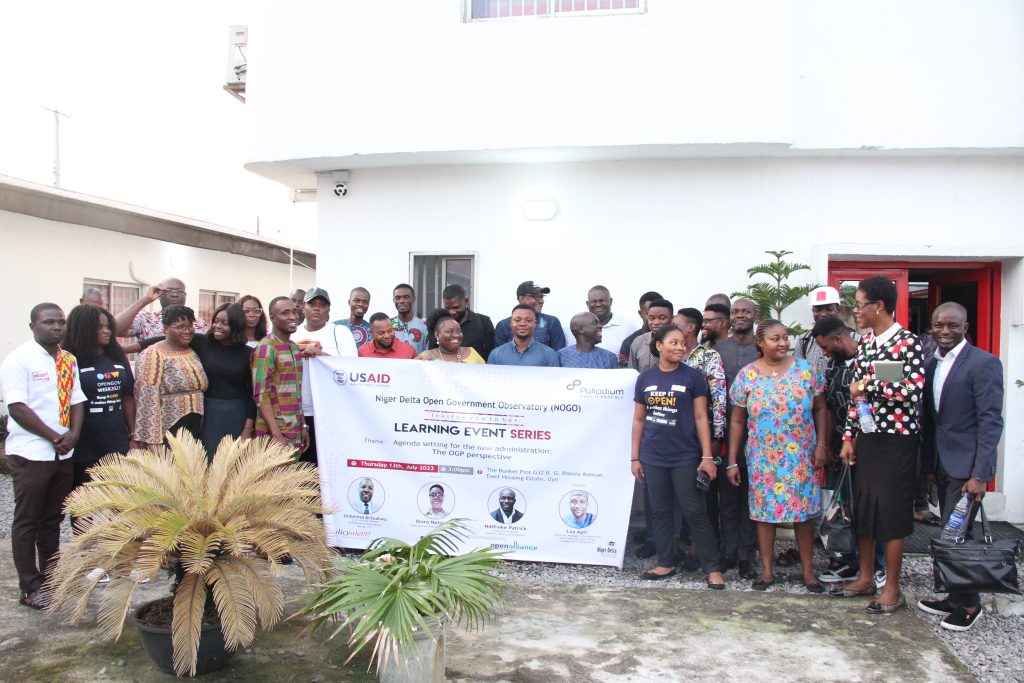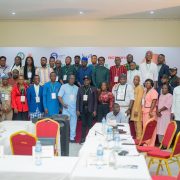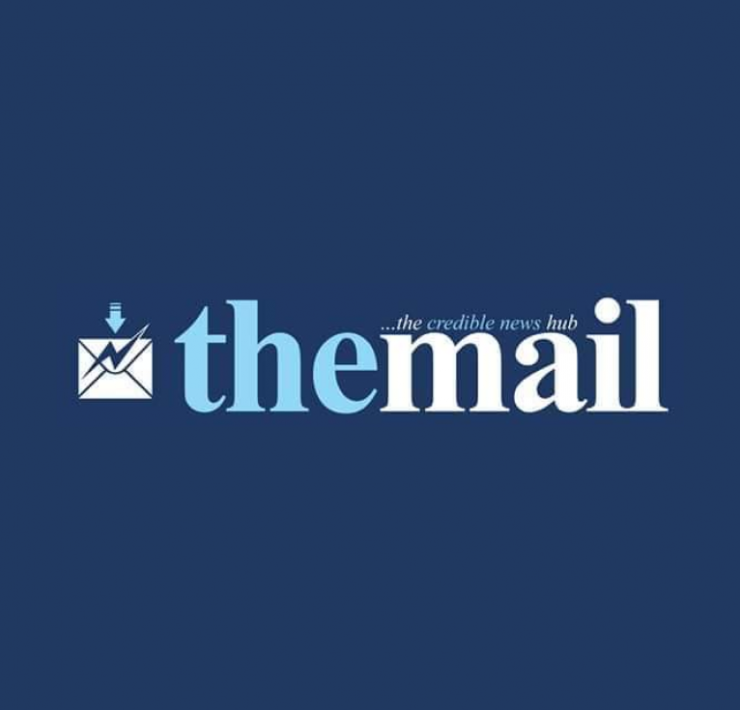Again, Stakeholders Call on Akwa Ibom State Government to Sign on to Open Government Partnership

… Outline Benefits
Imó Etim
In a bid to sensitize the people and to awaken the government’s consciousness on the gains of Open Government Partnership (OGP) , stakeholders in the civil society organisations, media and community based groups have again called on the government of Akwa Ibom State to sign on to the OGP.
The Stakeholders made the call on Friday, July 13, 2023 in Uyo, during the Niger Delta Open Government Observatory (NOGO) learning event on OGP.
According to Policy Alert, the anchor organisation of NOGO project said the event was aimed at providing state and non-state actors the opportunity to share experiences, learn lessons that can improve the uptake and implementation of OGP at the subnational level in the Niger Delta region.
The event attracted notable resource persons like; Uchenna Arisukwu–Civil Society Adviser from the OGP Secretariat, Abuja, Dr Iboro Nelson–Development and Health Economist from USAID State 2State, Ndifreke Patrick–Executive Director, Greater Tomorrow Initiative, and Laz Apir–Advocacy Manager, Strengthening Civic Advocacy and Local Engagement, SCALE-Palladium as the moderator.
Ndifreke Patrick, while making a presentation on Agenda Setting for the New Administration: The OGP Perspective noted that one of the ways to set agenda for the government is urging them to promote citizens participation, more inclusiveness in whatever they have in hand not by just doing so to tick the boxes or save face.
He added that although it has been noted by many that the Umo Eno led administration in Akwa Ibom seems like one that would be doing things differently, he should leverage on the framework that the OGP provides to thrive and to promote accountability and transparency in rendering people-centric and sustainable governance.
He further urged the state government to make the ARISE agenda of Governor Umo Eno an Akwa Ibom agenda where the people can interrogate the processes and contribute meaningfully and helpfully on ways to deliver true dividends of democracy as the case should be.
Dr Iboro Nelson, in her contributions faulted the processes of leadership selection in the country, noting that it has so much role to play in how transparent, and inclusive the government should be, citing an instance where the legislators rejected autonomy for themselves, where such opportunities presented themselves.
She added that what most governments bring up as agenda and policies do not enjoy the peoples contributions, as people are not mostly consulted, urging the CSOs to do.
Uchenna Arisukwu noted that OGP represents the process of making the governance open, transparent and people friendly, adding that it was not enough for government to assume on behalf of the people what the people needs were without allowing them make input not just for the sake of looking good but for allowing the people partake in all relevant areas of governance processes.
Mr Tijah Bolton-Akpan, the Executive Director of Policy Alert noted that agreeably, the OGP is not a silver bullet to provide all-round solutions to governance issues but there was need for CSOs to also think and work politically not just for ourselves but also to understanding the politicians, on the need to frame or build the OGP to meet the needs of each government at a given time, buttressing on the ideas of providing local solutions to local problems.
Low awareness and sensitization; misrepresentation and political interests, lack of political will and adequate information on the path of government were highlighted as the brick walls often encountered in the course of OGP advocacy in the state.
76 countries and 106 local governments of the world are currently committed to the OGP.
In Nigeria, 25 states have so far signed on to OGP; Akwa Ibom, Rivers, Bayelsa states still tops the list of States yet to be committed to the OGP in the Niger Delta despite the process being free and surrounded by other fiscal benefits.
Meanwhile, Policy Alert as the Anchor Organizations also hosted a two-day cluster coaching session for cluster members drawn from Akwa Ibom, Bayelsa, Cross River, Delta, Rivers , and Imo States in the Niger Delta region of Nigeria.









